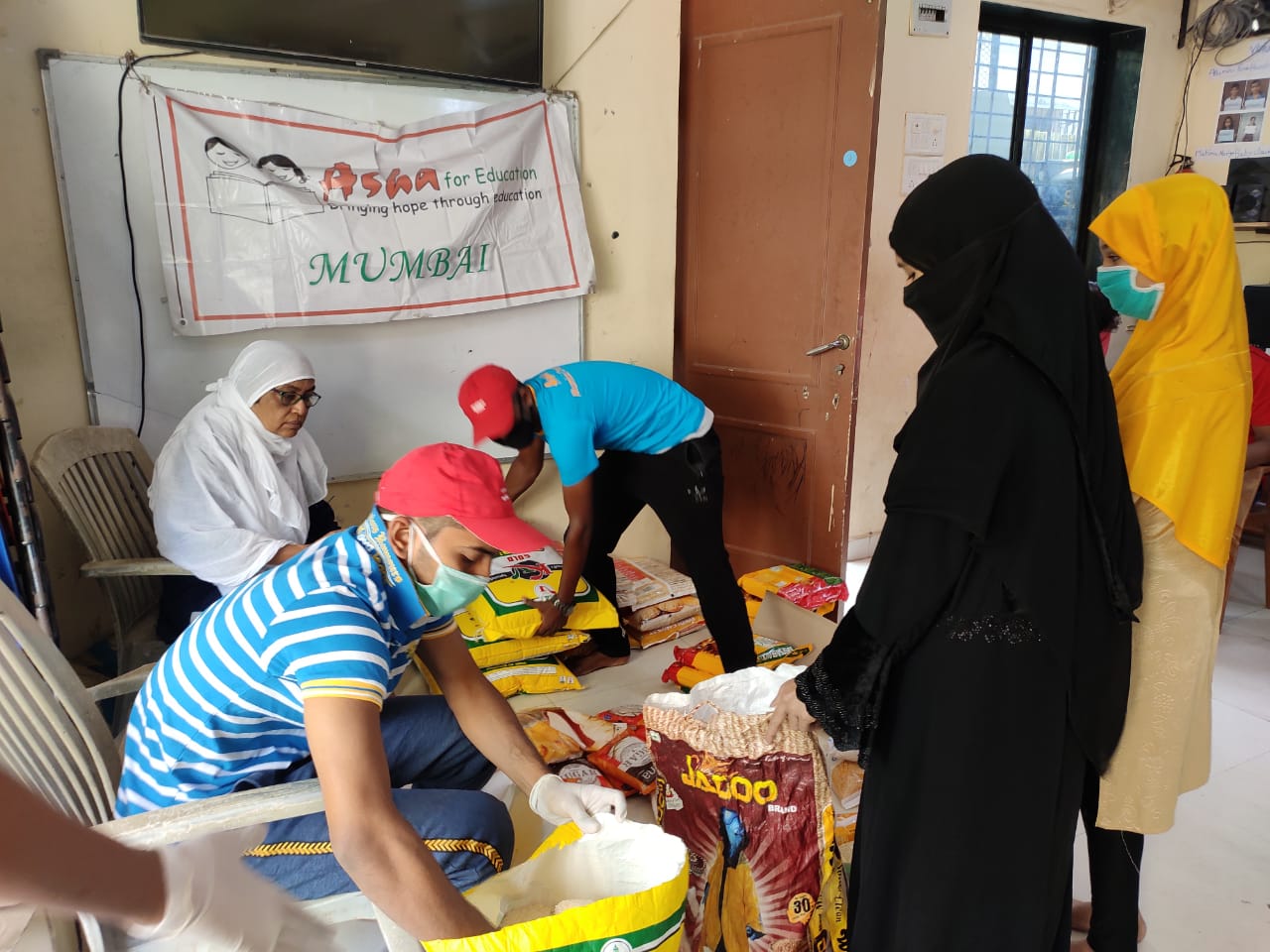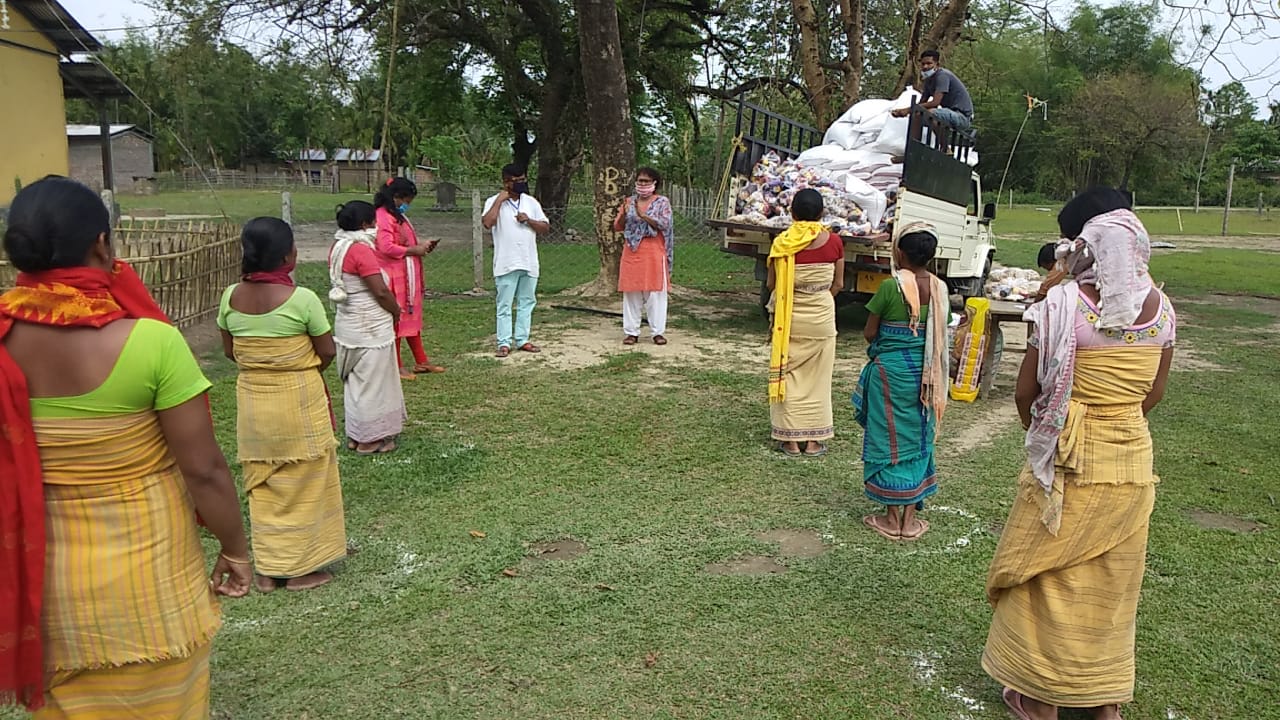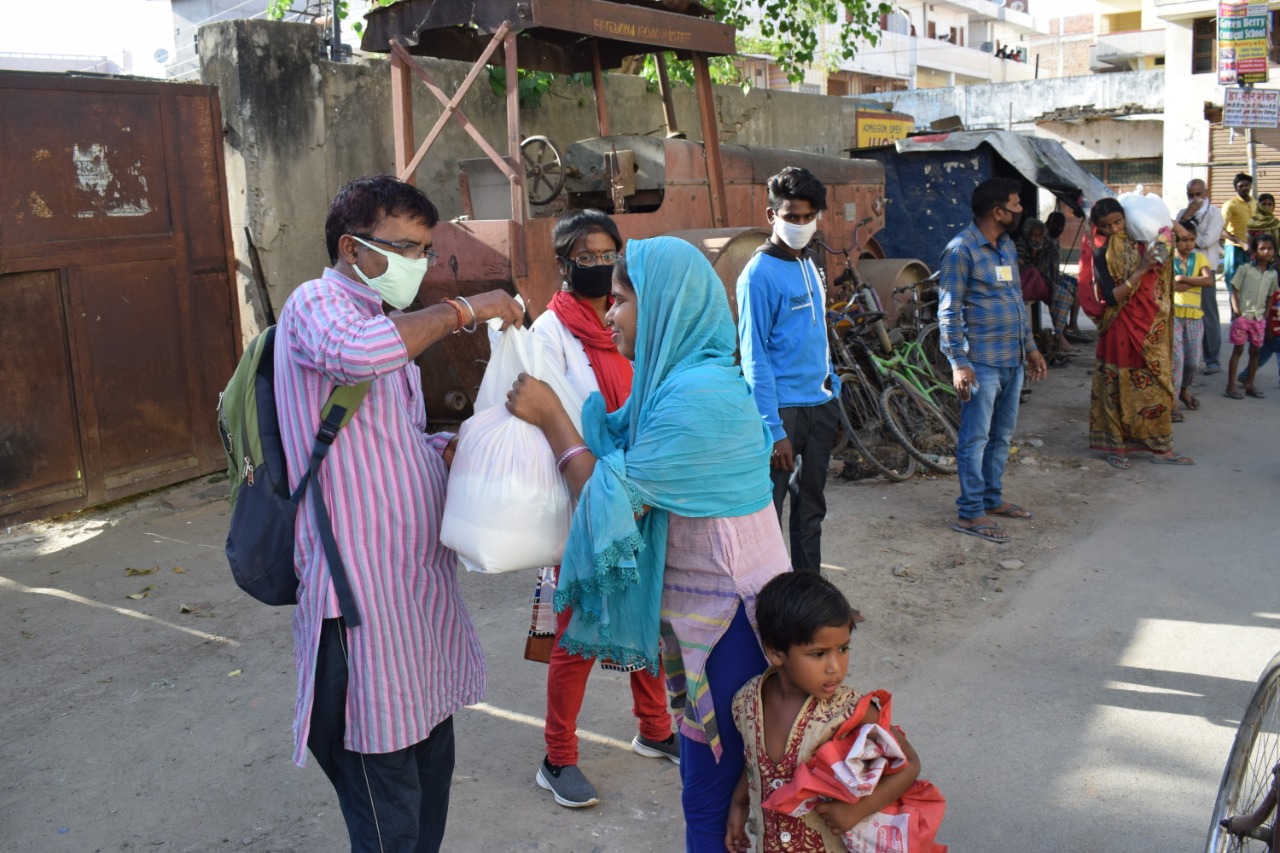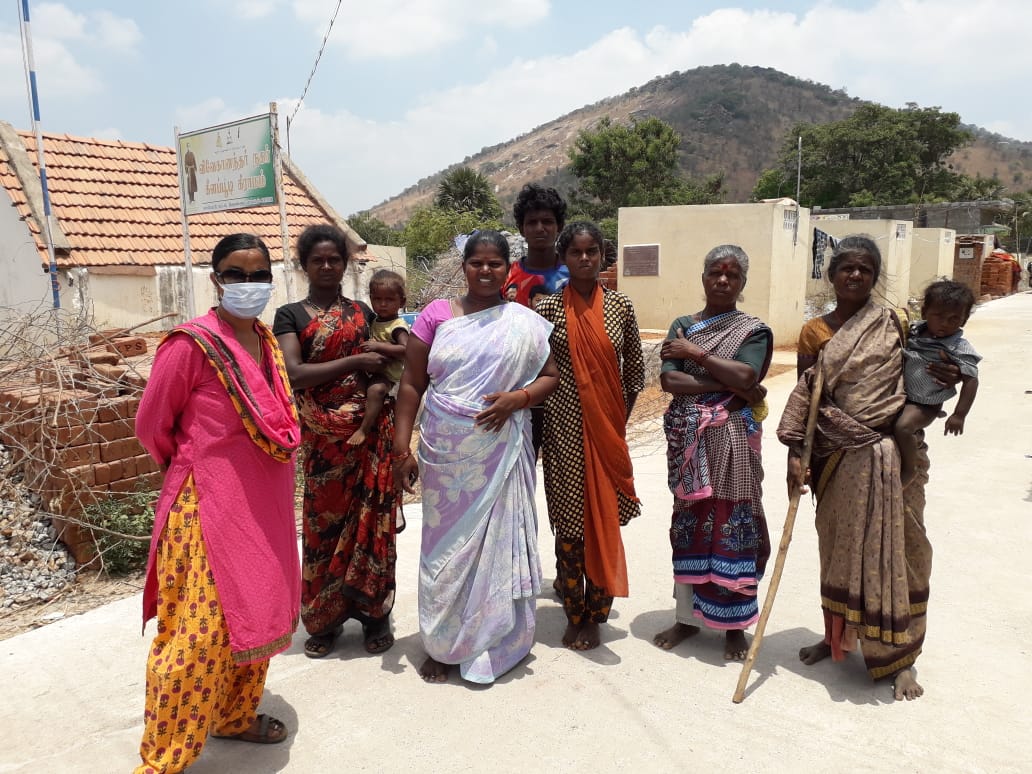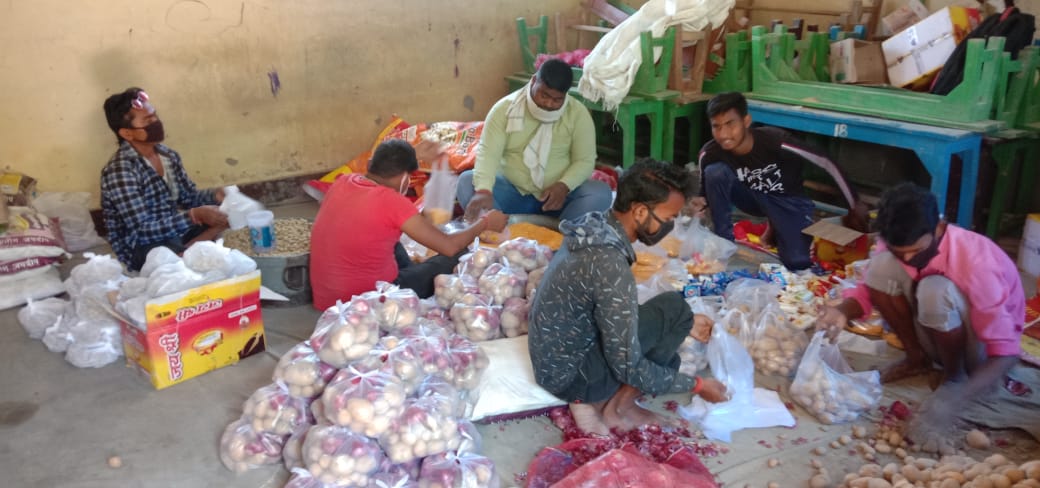As the novel Coronavirus pandemic crosses 2.5M+ cases across the world and several countries are enduring a lockdown, the marginalized communities across the world have been hit the hardest.
In India, millions of daily wage laborers can no longer work as the country enters the second week of the lockdown. Several non profit organizations working at a grassroots level are reporting shortage of food and sanitary products for disadvantaged communities.
Impacted groups:
1. Migrant laborers and children who have moved from rural areas to cities for work
2. Rural communities, transgenders, orphans and the homeless.
3. Children from low income families that cannot receive daily free mid day meals offered in government schools but schools are shut down
Relief efforts from our project partners
TUMULPUR, ASSAM
380+ families were provided with dry ration including rice, soy beans, dal, oil etc.
Asha Darshan Trust
The project promotes education by running 8 formal schools in rural Assam.
Learn moreJaipur, Rajasthan
200 families of migrant laborers working in brick kilns were provided with dry ration for 2 weeks.
KIGS - Brick Lane Project
Bridge school for 900 children of migrant workers in Chaksu region of Jaipur who could not attend formal schools.
Learn moreChatrapur, Odisha
~60 families of special needs children were provided with dry ration and sanitary products for 3 months.
Project Samarth
Samarth is a school for special needs children. Dry ration was provided to the families so the children can get healthy food during the crisis.
Learn moreKanpur, Uttar Pradesh
500+ families of migrant laborers were provided with dry ration for a month.
Apna Skool
Runs bridge schools for children of migrant laborers in Kanpur. Helped provide dry ration to families without ration card during the crisis.
Learn moreJammu & Kashmir
Running COVID-19 Awareness campaigns in Kupwara, Baramulla, Budgam and Jammu
Borderless World Foundation
Involved in disaster relief and medical support and rescuing children left orphaned by the conflict.
Learn moreCuttack, Odisha
Cooked food is distributed twice a day in Railway station area and Bidanasi Nusahi of Cuttack.
BASUNDHARA, CUTTACK
Basundhara runs a school 20 kms from Cuttack, for pre-school to Class VIII, supported by Asha Purdue chapter.
Learn moreBhilai, Chattisgarh
500+ families of were provided with dry ration for a month. Cooked food was distributed to people walking home in the initial days.
Sankalp Ek Prayas
Works with rural government schools to improve the quality of education. Volunteers provided meals and ration to migrant workers.
Learn moreSouth 24 Parganas, West Bengal
2000 families were provided with dry ration.
BAIKUNTAPUR TARUN SANGHA
Leading grass-root level community based organization having memberships in various government bodies.
Learn moreBhopal. Madhya Pradesh
~285 families were provided with dry ration.
Muskaan
Works with 24 slum areas of Bhopal providing education to the underprivileged children. They are supporting 4500 families during the lockdown in availing relief measures.
Learn morePune
200+ families were provided with dry ration for 2 weeks.
India Sponsorship Committee
Works with children of slum dwellers, migrant workers, in Yerawada. Have reached out to 500+ families in the area during the lockdown.
Learn moreSundarbans, West Bengal
400 families were provided with a dry ration kit of rice, lentils, potato and oil for 2 weeks.
Champa Mahila Society
The women's groups of the project are making masks for local communities. They also run COVID awareness campaigns in the region.
Learn moreThirupporur, Tamil Nadu
213 families who migrated from other states in 10 villages were provided with dry ration for 1 month.
Rural Development Trust
Runs a school for the children of migrant workers in Thirupporur block of Chengalpattu for last 15 years.
Learn moreVaranasi, Rajatalab, Kaithi, Uttar Pradesh
1200+ families were provided with a dry ration kit for 2 weeks.
Asha Trust
Asha Fellow Nandlal Master has mobilized ~35 volunteers to identify the most affected people across 40 villages and provide them with relief in any way possible.
Learn moreSivaganga, Tamil Nadu
940+ families in 28 villages were distributed 10 kgs of rice each.
Fellowship - Siddamma
Our long time Asha Fellow, Siddamma is distributing rice to those who do not have ration cards to avail government benefits.
Learn moreDelhi
100+ families were provided with dry ration for one month.
JOSH
Asha provides fellowships to Aheli and Saurabh Sharma who help improve the quality of education and provide vocational training to youth in the area.
Learn moreMumbai
100+ families were provided with dry ration for one month and 12,000+ meals were distributed by volunteers.
Asha Mumbai Chapter
Asha Mumbai runs a center near IIT Powai, Mumbai and have been helping the local migrant communities.
Learn more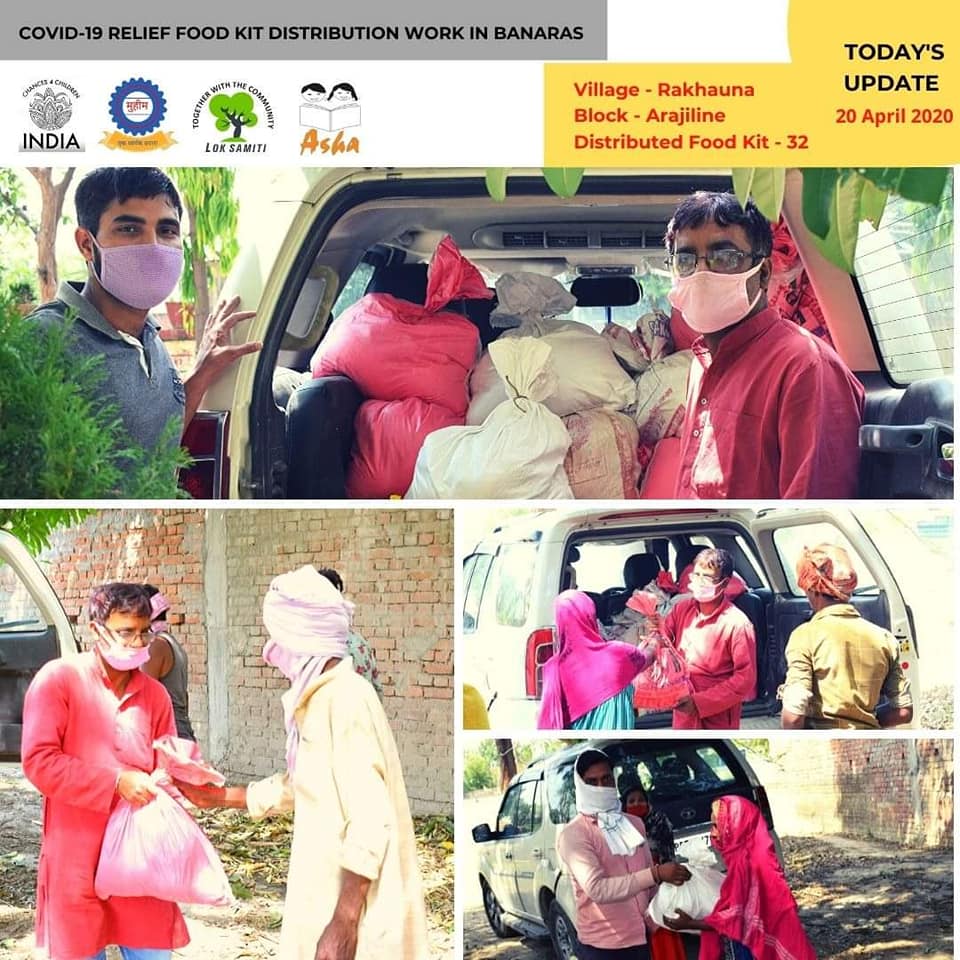
COVID RELIEF - VARANASI by Nandlal Master
Just West of the cultural heart of India near Varanasi are large populations of landless Dalits and other lower castes: saree weavers, farm hands, tea stall boys, vegetable vendors, construction labourers, rickshaw drivers, etc. They live hand to mouth and depend heavily on daily wages.
Asha Fellow and former weaver, Nandlal Masters has been working in this area since 1994 (set up the 1st school). Starting in 1999 he mobilized locals into awareness of their rights and needs and appropriate govt representation. His team has has set up women’s self help groups, transformed the way people think of and spend on marriages etc. Enmeshed in this community for over 25 years, they are very aware of the fragility of families in the area.
Since lockdown began, Nandlal has mobilized ~35 volunteers to identify the worst affected people across 40 villages and provide them relief in the following important ways:
- Distributing provisions for a week
- Educating on Covid19 related hygiene and self-care, and Govt. helplines and resources.
- Involving politicians to educate people with their credibility.
- Providing mobile banking for villagers to access their Jan Dhan account or other cash.
- Written to CM Yogi Adityanath to suggest potential resources for future situations in case community transmission begins.
- Helping out case by case with those who live alone or those who need medical care, driving them to the still-open public hospitals and arranging for their care.
The ONLY portion of this work that they have requested funding for is the cost of the relief materials. What sets this project apart for Asha is the credible, thoughtful and optimal way that the local needs are being identified and met:
Careful identification of needy is based on deep community knowledge: people who may:
- Not have a Ration Card, MNREGA job card or Jan Dhan account
- Be unable to withdraw their Jan Dhan money
- Have already used up the small Rs 500 granted by Govt.
- Have other medical or family hardships known to the volunteers
- They consult with the local Sarpanch to confirm their list. Maintaining lists of people to facilitate application of ID documents when Govt. offices re-open (a drive that was led back in 2011-2013 also).
- First visit to the village is to give a token to the families identified and fix the date and time for distribution of kit.
- Volunteers partnered with the police to prevent crowding and set up queues for only those with tokens.
- Relief kits thoughtfully consists of items truly needed (Govt only providing rice) – Wheat, Lentils, Soy chunks, Potato, Onion, Salt, Cooking oil, 1 pack biscuit, Soap.
Understanding the true nature of issues, including inability of people to access their money, and arranging arranging a bank volunteer to travel to villages helping people access their accounts and cash.
Team is split into four team
- Village survey & verification of needs
- Purchasing
- Packing
- Distribution / Delivery
Recognizing that people are used to getting information en-masse, but meetings not being an option, they have created pamphlets and flyers and verbally tell people during distribution of relief kits regarding social distancing, face covering and hygiene.
